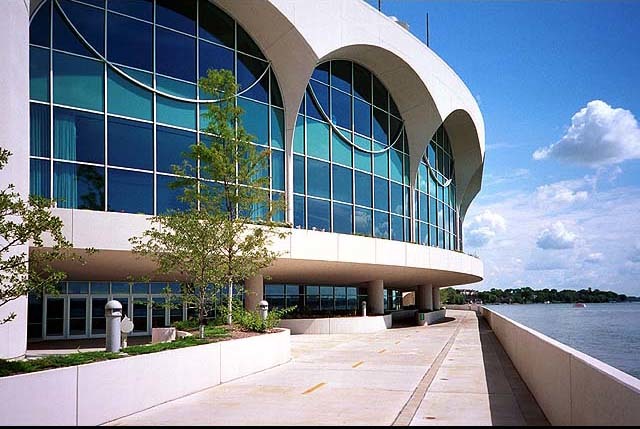Numerous organizations have pocketed more than $1.4 million in taxpayer incentives to hold events at the Monona Terrace Community and Convention Center in Madison, Wis., a lure that several have said is entirely unnecessary.
The reason? Some of those agencies would have used the Madison facility anyway.
Yet the city has already committed at least an additional $313,000 in incentives through 2020, a figure that’s expected to increase if more gatherings are scheduled.
That $1.75 million is a drop in the bucket compared to several alternatives being considered to entice more and bigger groups to come to the highly subsidized $67.4 million convention center, with one requiring as much as $88 million in taxpayer support.
Proposal for New Hotel
City officials are reviewing various proposals to redevelop the nearby Judge Doyle Square, including building a 300-room destination hotel with significant meeting space, commercial development, housing and parking.
In the meantime, Madison will continue to dole out up to $200,000 a year in hotel room tax revenues from the Monona Terrace booking event assistance account to encourage groups to use the local complex.
More and more publicly financed convention centers across the country are using similar tax-fueled incentive programs to stay competitive in an industry that, in spite of a rise in new facilities, has remained relatively flat for more than a decade.
Bill Zeinemann, associate director of marketing and event services for the Monona Terrace, calls the booking event assistance fund an excellent investment that allows the city to attract visitors that might not otherwise come to the facility.
Monona Terrace bases its incentives on a formula estimating what groups might bring to the city in terms of out-of-town attendance and direct spending by visitors.
“It’s something we need to have to effectively compete,” Zeinemann said.
Little Influence on Decisions
But most representatives of organizations that have or plan to use Monona Terrace and returned phones calls to Wisconsin Reporter say the incentives don’t make or break their decision in coming.
“Sometimes we don’t even know about those programs until afterwards,” said Louise Murgia, interim executive vice president of the Society of American Foresters, which is slated to receive $39,000 for its national convention in 2016.
Some, like the Wisconsin Dental Association, which will get $7,000 back for its 2015 InSession meeting, had no idea its event was subsidized.
“We are not aware of any incentive package at the Monona Terrace,” said Mara Brooks, director of government services for WDA.
‘Shouldn’t Have Any Problem’
Heywood Sanders, a public administration professor at the University of Texas at San Antonio, was surprised to learn that a city like Madison would need to use taxpayer money to help bring in convention business.
“Madison shouldn’t have any problem competing for Wisconsin state events,” Sanders said. “That, to me, is striking that you apparently need to use incentives in order to get events that the Monona Terrace and the state capital ought to have a natural advantage in attracting.”
Far riskier for taxpayers, Sanders said, is any one of the proposed Judge Doyle Square redevelopments, especially at a time when many publicly funded convention center hotels are failing.
Huge Hotel Losses
Baltimore opened a convention center hotel in 2008 after city officials authorized more than $300 million in tax-exempt bonds to finance its construction. Since that time, the building has lost more than $50 million.
St. Louis built a similar facility in 2003 for $277 million, but decided to foreclose on the property in 2009 when hotel revenues were not sufficient enough to pay off the debt service.
A convention center hotel in Charlotte also has cost taxpayers as much as $30 million annually in construction debt, operating losses and incentives to win business. Charlotte has been unable to keep its promise to repay taxpayers. Since the building opened its doors in 1995, it has fallen well short of the 528,800 hotel room nights a year to fulfill its mission of putting “heads in beds.”
Risky Undertaking
Some real estate experts fear the same thing could happen in Madison.
“It’s not a slam dunk, no-risk undertaking for the city,” said Sue Springman, a senior project manager with the Mullins Group. “They really have to look very carefully at this.”
One of the biggest questions surrounding the proposed development is whether or not there is need for additional hotel rooms to accommodate the Monona Terrace.
Since the convention center opened more than 15 years ago, the annual number of events and attendees has either declined or stayed nearly the same.
The Monona Terrace hosted 860 gatherings in 2001, but that number dropped to 594 in 2012. The complex saw a total of 228,240 guests in 2001 and 223,464 in 2012.
Dubious Study Findings
But a study by C.H. Johnson Consulting Inc. predicts a new hotel would help the Monona Terrace secure larger gatherings and additional visitors because there is “a lack of a hotel room inventory within close proximity” to the convention center.
That report, however, doesn’t take into account the several hundred hotel rooms that recently opened in Madison, or will do so in the next few years, Springman said.
George Wiesner, general manager of the Best Western Plus Inn on the Park, contends that if a genuine demand existed for more downtown hotels, private developers would meet that need without the use of public funds.
“If the market called for over 300 rooms — there are plenty of hotels being built in Madison and around the country — a hotel developer would come in and build them,” Wiesner said.
Adam Tobias (atobias@watchdog) reports for WisconsinReporter.org, where this article first appeared.


